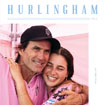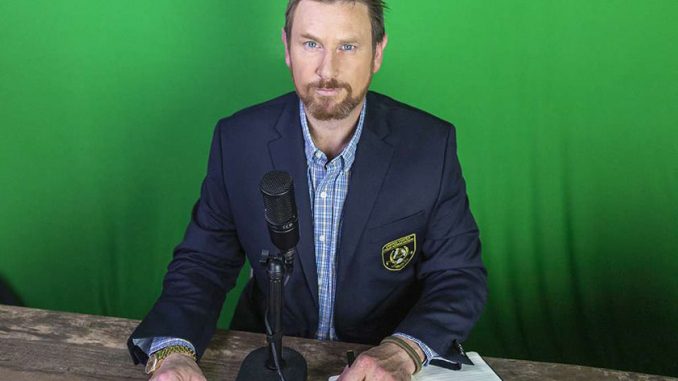
The evolution from player to announcer: USPA Polo Network’s Toby Wayman
Trading in his polo boots for a microphone, Toby Wayman has achieved notability as the face of the USPA Polo Network since 2017, educating and entertaining online viewers on an international stage with his lively and observant commentary. Born in San Antonio, Texas, the son of legendary American 10-goaler and Hall-of-Famer Tommy Wayman, Toby became a 2-goal pro at the height of his career, playing across the United States and Canada. Following the premature end of his career, Toby unexpectedly found himself forging a new path in broadcasting, reinventing himself as he transitioned from one side of the boards to the other. Announcing for clubs across the country and previously working for ChukkerTV, Toby’s authority lies in his extensive knowledge of the game, catering to both die-hard polo fans and curious newbies.
Calling Big Horn, Wyoming, home since his teenage years, the soon-to-be father of two boys now spends most of his time in Wellington, Florida, with his wife Brittany, young son Jackson and their family bulldog Jelly. An avid bonsai gardener, Toby’s quirky personality shines through in his commentary which is characteristically peppered with personal anecdotes. Sitting down with the USPA just before the start of the robust 2019 high-goal season, Toby shed some insight into his process, recent trip to Argentina, and the key to capturing and sustaining an audience.

What is your equestrian background and how did you become involved in polo?
“My father, Tommy Wayman, was formerly 10-goals, and both my grandfathers and my uncle played; so the whole family revolves around the sport of polo. My dad was always my hero growing up so I had to be just like him, I even dressed like him. My mom would always buy clothes in two sizes, one for him and one for me.
I loved to ride as a kid, but I didn’t start taking polo seriously until I was 11 or 12 years old. My mother homeschooled me through middle school, but my parents would not let me play professionally without at least a high school diploma. So when I was 15, I went to boarding school for two years, completing all four years in half the time and graduated when I was 17. My best friend Whistle Uys came over from South Africa when he was 17 to work with my dad and we grew up together. Our first professional polo job away from home was playing in Nashville, Tennessee, for Robert Lipman of Graymar Farms.”
How did you transition from playing professionally into announcing?
“I was playing in an 8-goal tournament in Aiken, South Carolina, when I got hit on the field, but I didn’t think much of it. My ribs kept hurting more as the days went on so I went to the doctor and found out I had a really rare form of bone cancer. I had to have 10 inches of rib cut out which meant that I could die if I got into an accident. Between a knee injury and my ribs, I decided to retire from playing about eight years ago.
When I quit playing professionally I was scared and didn’t know what I was going to do next. I was at a game at Big Horn Polo Club in Big Horn, Wyoming, where Shane Winkler was announcing and he went during halftime to check on the ribs he was cooking for the club. He hadn’t returned by the start of the fourth chukker so I just picked up the microphone and started commentating. I didn’t know what I was doing and was just having fun with it, but Jimmy Newman overheard and asked me to be his full time announcer at International Polo Club Palm Beach in Wellington, Florida, for the winter high-goal season. I was in the right place at the right time and I think I’m a better announcer than I ever was a polo player so it really worked out well for me.”
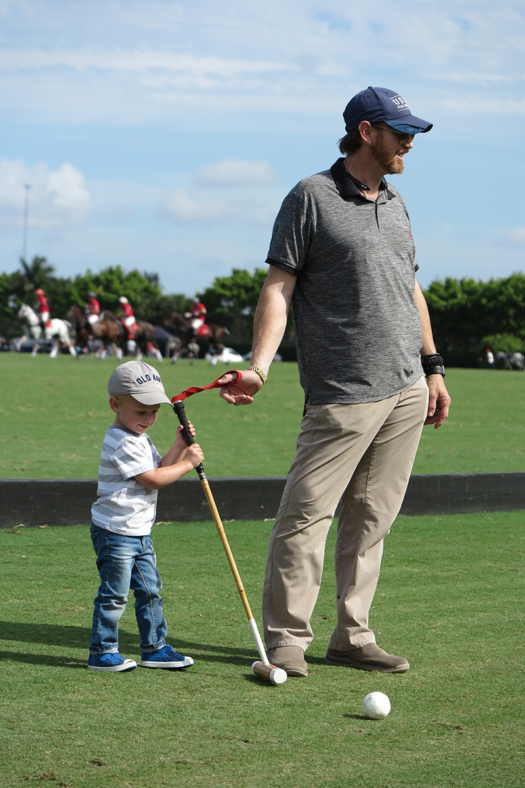
How has your playing knowledge helped or influenced your analysis and commentary?
“I think my advantage over some announcers is that everything that I announce up to 26-goals I’ve played myself, with the exception of going to Argentina recently. Because I’ve played those levels of polo myself, I know what it’s like to be there and what it takes.
I’m self-taught so my biggest asset is that I can anticipate what’s going to happen during a game from a player’s perspective. I can see plays developing that others may not see and many people have told me they enjoy that about my commentary. I’ll talk about a play that is developing before it happens and when it does I’m directing spectators to focus in on that in real time. When I listen to other announcers I find that they either tend to be announcing to a very well-educated audience or to an uneducated audience. To me there’s a fine line to walk between announcing to these two groups and I try to balance the two. I try not to get too much into Polo 101, but I also want to breakdown the deeper concepts of what’s happening and what can be expected. I also like to give my opinion as what I think a team could do or needs to do in order to come back and win.”
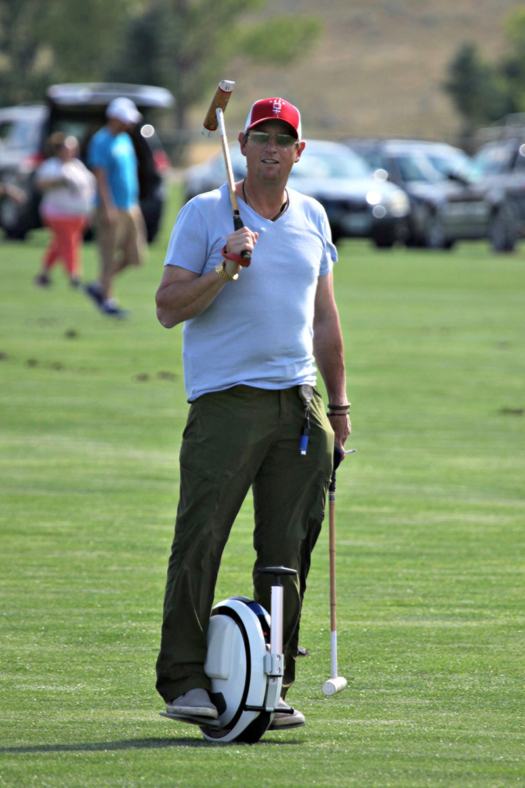
“When I got that call from Newman to come be his announcer I found my niche to stay involved in the game, stay relevant and to pass on the knowledge that I’ve learned from my father.” – Toby Wayman
How do you prepare for a USPA Polo Network broadcast?
“I devote at least one to two hours of prep for each game either the day before or the day of depending on how many games I have to do. I like to look at the rosters and to go back and see what games they have already played. I also think about what each team did in their last game, who they played, and what they need to do to win today. I watch past broadcasts to get a feel of what I can expect from each team and review the horse lists. When I’m announcing an hour and a half long game plus two hours of prep, I put a total of three and a half hours of work into each game. Whenever the games are being played back-to-back that’s when I prepare the night before. I keep a notebook on my desk where I write down notes for myself and keep my own scoresheet so I can refer to it as the game progresses.”
How did you get your first international opportunity to announce during the 2018 Argentine Open?
“It was incredible to announce at Palermo, it’s been in the works now for two years. We have a friend in Argentina, Pepe Santamarina, who listens to me broadcast for the USPA Polo Network and he really likes my style. He’d been trying to work a deal with ESPN for me to come down and do the Argentine Triple Crown. When my family and I went to Argentina after the 2018 U.S. Open Polo Championship® Final I stopped in Buenos Aires overnight and met with the head of ESPN polo. Years ago they had Tony Coppola announce once or twice, but since then they have not been catering to English speakers. Now, ESPN is looking to open up the Argentine polo market to an English speaking polo audience. After that meeting I didn’t hear from them all summer and then two months ago he called to give me the good news. Originally I was going to announce the entire Argentine Open along with England’s Ebe Sievwright, but it ended up just being the semifinals and final.”
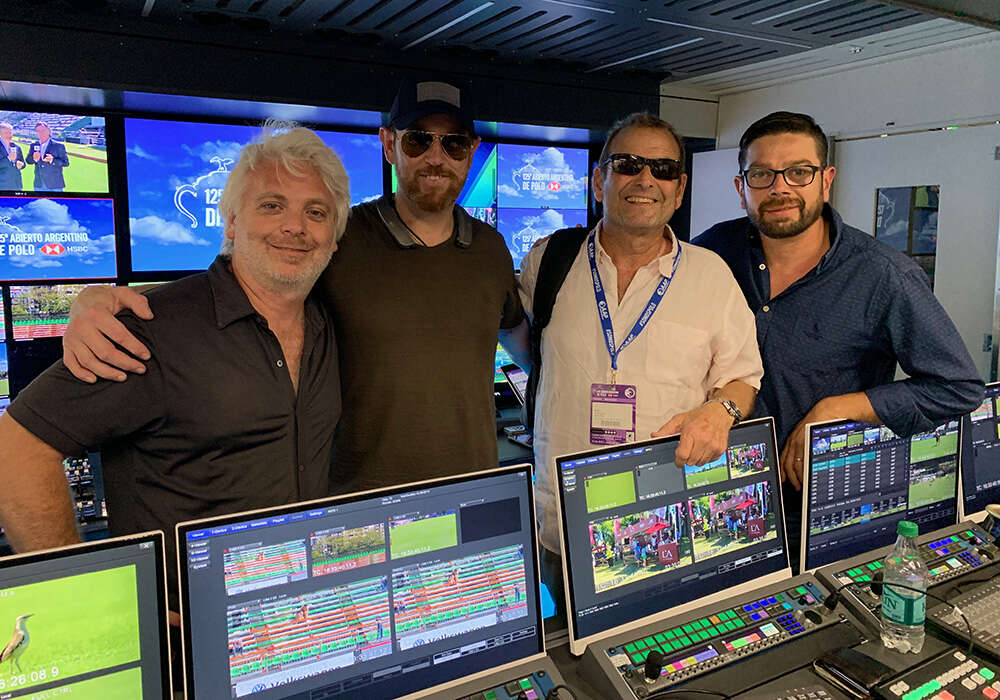
How was the experience of being in Argentina?
“Announcing in Argentina was definitely a bit of a learning curve for me because I’ve never played 40-goal polo. To do it properly I had to work at it a little bit until I felt comfortable. ESPN was pretty happy with my performance so there is a good chance I’ll get to go back next year to do the Argentine Open and perhaps the Hurlingham and Tortugas as well. While I was there I was invited to watch the Argentine commentators do their weekly show at the ESPN studio. It was neat to see the ESPN news desk, cameras and five control booths. I can’t tell you how much I learned from being there and having the opportunity to see how they run their broadcast.
In the United States we broadcast off a monitor in the studio but in Argentina on Field 2 they have scaffolding where they have the centerfield camera raised up and just below that two areas for the Argentine announcers and an area for the English announcers. I commentated live from the field and watched the replays on the monitor. On Field 1 at the top of the main stadium they have VIP boxes where I sat to announce the final.”
What do you think about the new Gauntlet of Polo™ tournament series?
“I’m on the USPA Tournament Committee and when it was first proposed to lower the three 26-goal tournaments to 22-goals I was not in favor of it. But as soon as we lowered the handicap we had a record number 16 teams register to play in the 22-goal which is amazing. So many of our young, talented American players now have high-goal jobs. I think it’s awesome that these guys are getting opportunities that otherwise wouldn’t have been possible if we hadn’t made this decision. Then of course you add in prize money and I think it’s going to make this tournament series so competitive, especially when you have up to a one million dollar purse for all three tournaments. Many of the top players have had to maintain two strings, their 26-goal and 20-goal horses. Now we get to see the 26-goal horses playing in the 22-goal which will make the tournaments that much faster.”
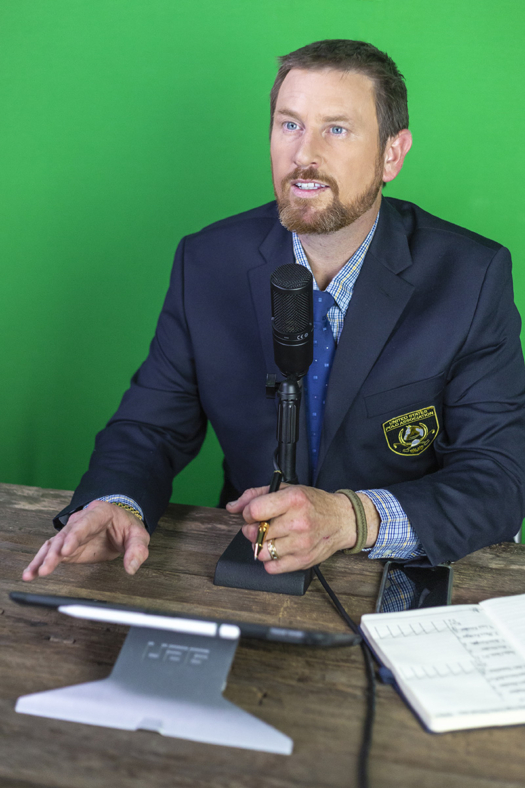
Follow all the upcoming livestreamed games of the Ylvisaker Cup with Wayman starting this Saturday, January 19, at 12:00pm ET. For a full schedule of tournaments and livestreamed games throughout the season please visit uspolo.org and tune into the USPA Polo Network broadcast on Facebook, Twitter or YouTube.

